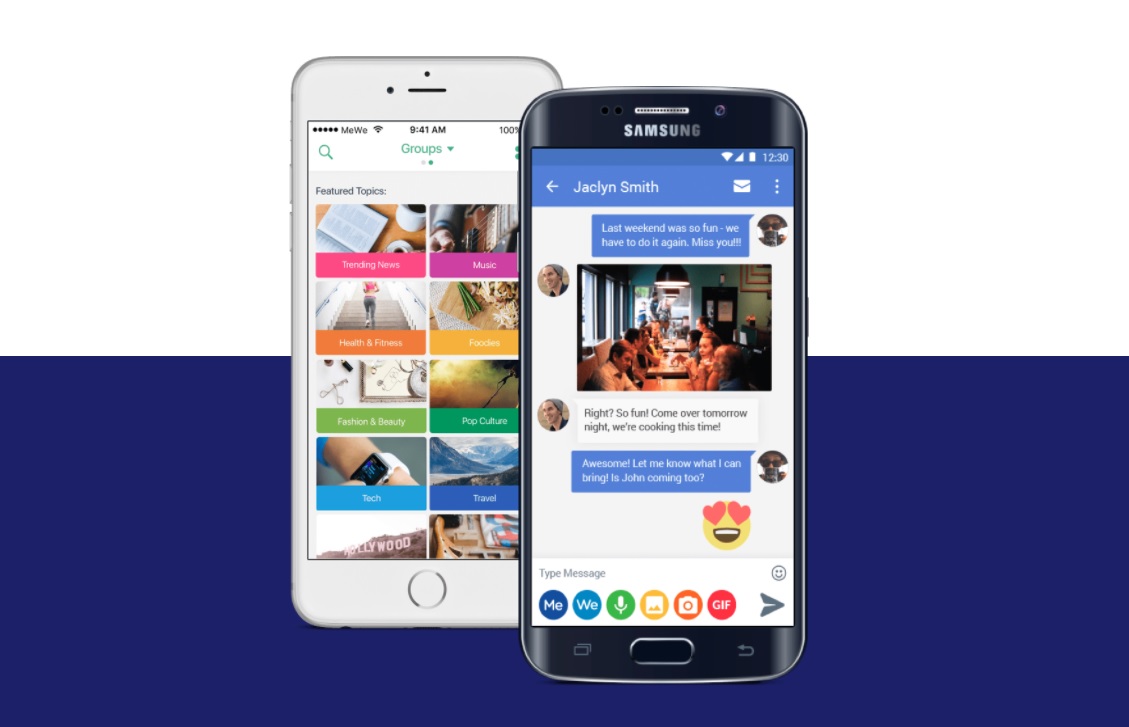MeWe social network racking up millions of new users — but what is it?
The privacy-focused social network is coming for the likes of Facebook and Twitter

UPDATED with comment from MeWe.
Social media networks like Twitter and Facebook are facing scrutiny from all angles. People have accused these platforms of privacy abuse, being unwilling to prevent hate speech or general censorship of people with certain opinions.
It’s no wonder that people have been fleeing those services for new online spaces that can offer something different. One such platform is MeWe, an “anti-Facebook” platform that promises privacy and freedom from ads.
- These are the best WhatsApp alternatives you can download now
- How to stop Facebook sharing your data
- Plus: AirPods Max teardown reveals secret customization feature
MeWe’s website promises that privacy is the foundation of its online social platform and that it will not be selling users' personal information to advertisers or other parties.
It also promises that you own your own content, that you choose who gets to see it, and that it doesn’t use facial recognition on your photos. MeWe also said there will be no newsfeed manipulation, unlike some platforms that prefer to mix it up with algorithms.
What’s more, MeWe has a privacy bill of rights that completely outlines its policies. The gist is that everything is yours under your control, and won’t be sold off to help MeWe make money. Most importantly, you can delete your account (and any data it contains) at any time.
With all that in mind, it’s not surprising that MeWe has seen a massive spike in sign-ups recently. It launched back in 2016 and hit nine million users by October 2020, though that number has increased to 15.5 million members as of this writing — half of whom are outside of the U.S.
Sign up to get the BEST of Tom's Guide direct to your inbox.
Get instant access to breaking news, the hottest reviews, great deals and helpful tips.
What you get with MeWe, and what it might cost
MeWe is free to join, but some of its features do cost money. The free tier includes the newsfeed, private and groups and group chats, pages to follow, stores, voice messaging, an 8GB cloud-storage drive and more. Beyond that, you can enhance what the platform does, but that will cost you.
Voice and video calling costs $2 a month, as will MeWe pages and journals. Upgrading your cloud storage to 50GB costs $4 a month, while you can also buy custom emoji and sticker packs for $1 each. For those of you that want a lot of these features, MeWe’s premium tier packs the best of them in for $5 a month.
MeWe Pro also offers Slack-like features for businesses, letting employees communicate and collaborate online. Naturally, that costs money too, though it’s not going to be as relevant to individuals fleeing Facebook and Twitter.
Can't avoid the controversy
However, like other social networks, MeWe has been accused of a loose moderation approach that has let some controversial content thrive.
Reports say that it's recently become a popular platform for anti-vaxxers, QAnon proponents, far-right militia groups, and white supremacists. That's the kind of content Facebook and Twitter now claim to be cracking down on. All of that is worth bearing in mind before you sign up for MeWe or hand over any money.
If you’re still interested and want something to replace your Facebook and Twitter accounts, MeWe is available on Android, iOS, and in your web browser.
UPDATE: A MeWe representative reached out to Tom's Guide to provide us with this statement:
"MeWe has a strong Terms of Service that prohibits inciting violence, hate, harassment, bullying, illegal activity, etc. MeWe has an outstanding Trust and Safety Team that works hard every day to proactively investigate and remove TOS-violators."

Tom is the Tom's Guide's UK Phones Editor, tackling the latest smartphone news and vocally expressing his opinions about upcoming features or changes. It's long way from his days as editor of Gizmodo UK, when pretty much everything was on the table. He’s usually found trying to squeeze another giant Lego set onto the shelf, draining very large cups of coffee, or complaining about how terrible his Smart TV is.
